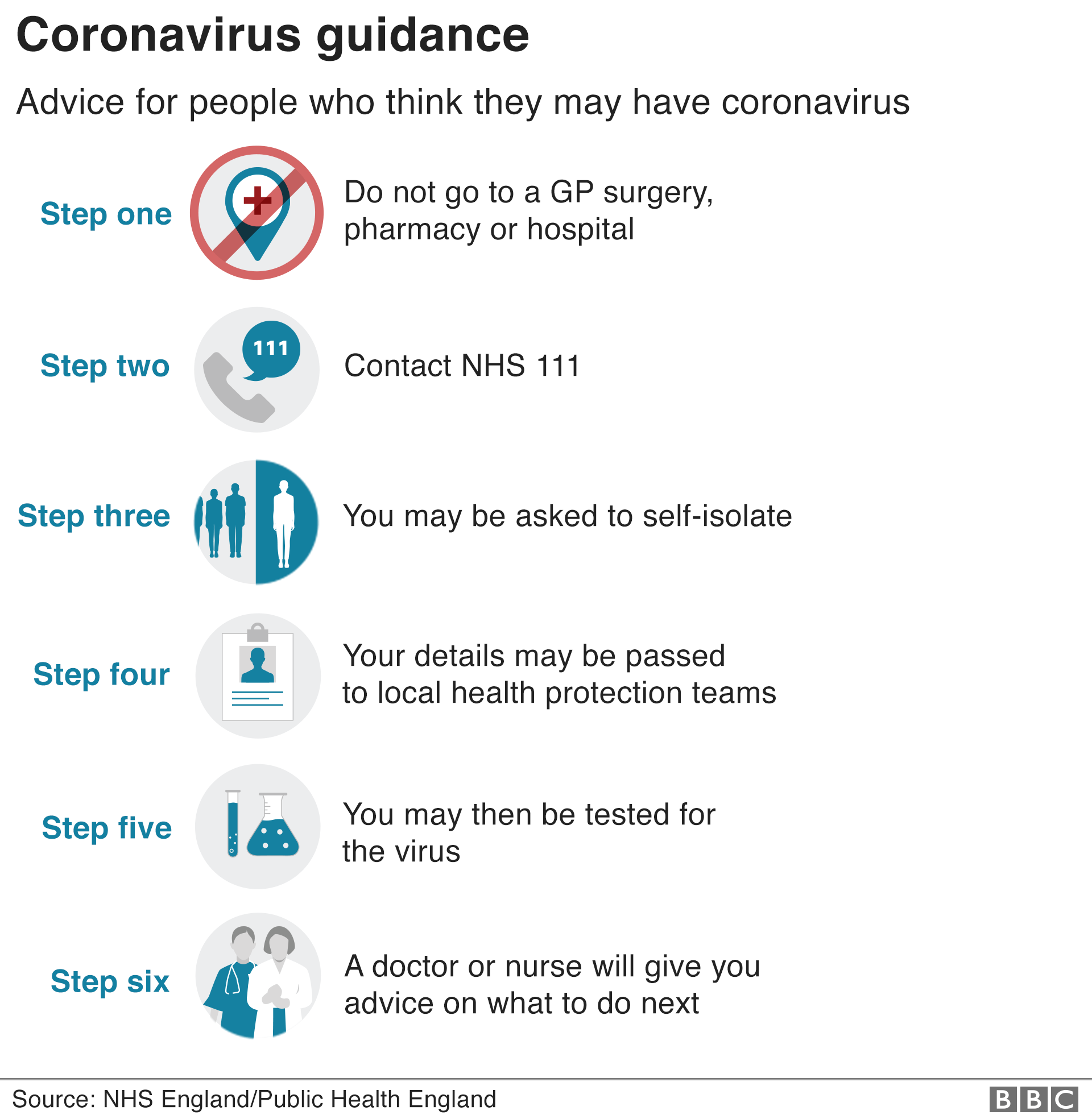With so much misinformation around about the Coronavirus we searched to find the most up to date for our readers and that seems to be coming from the BBC website who posted a comprehensive overview for the UK.
They say: A respiratory infection originating in China and known as the “new coronavirus” is now spreading faster outside the country than inside. More than 50 countries have been affected, including the UK.
With further infections now likely they offer some information and the latest practical advice on what to do – based on information from the World Health Organization, Public Health England and the UK National Health Service (NHS).
How do I avoid getting it?
It is not yet known exactly how coronavirus spreads from person to person. However, similar viruses are spread via respiratory droplets, such as those produced when an infected person coughs or sneezes.
Therefore, there are things you can do to minimise your risk of catching it.
1.Wash hands frequently
2.Catch coughs and sneezes in disposable tissues
3.Throw away used tissues
4.If you don’t have a tissue use your sleeve
5.Avoid touching your eyes nose and mouth with unwashed hands
6.Avoid close contact with people who are unwell
You only need to stay away from public places if advised to by the NHS’s specialist 111 online coronavirus service or by a medical professional.
There is currently no evidence that you can catch coronavirus from parcels and letters or from food. Viruses like coronavirus cannot live for very long outside the body.
Will I get it?
In the UK, the country’s chief medical officers have raised the public risk level from low to moderate. But, the NHS says, the risk to individuals remains low.
However, there are some countries and areas where there’s a higher chance of coming into contact with someone with coronavirus.
Therefore, there is extra advice for UK travellers, including those who have returned from affected areas, including China, Italy and Iran.
But even if you do get it, you are likely to experience mild symptoms and recover.
How do I know if I’ve got it?
The new coronavirus – known as Covid-19 – seems to start with a fever, followed by a dry cough and then, after a week, leads to shortness of breath.
But these symptoms do not necessarily mean you have the illness.
The symptoms are similar to other viruses that are much more common, such as colds and flu.
In more severe cases of Covid-19, infection can cause pneumonia, severe acute respiratory syndrome, kidney failure and even death.
Older people, and people with pre-existing medical conditions (such as asthma, diabetes, heart disease) are more likely to become severely ill.
What should I do if I think I’ve got it?
If there’s a chance you could have coronavirus, you are advised not to go to a GP surgery, pharmacy or hospital.
Instead, the NHS says you should contact its dedicated 111 online coronavirus service, operating in England, Scotland and parts of Wales, which can tell you if you need medical help and advise you what to do next. Or alternatively call a medical professional in your area.
You should contact the NHS 111 service if:
- You think you might have the virus
- You’ve been to Cambodia, China, Hong Kong, northern Italy, Iran, Japan, Laos, Macau, Malaysia, Myanmar (Burma), Singapore, South Korea, Taiwan, Thailand or Vietnam in the past 14 days
- You’ve been in close contact with someone with coronavirus
As a result, you may be asked to stay away from other people (self-isolate). You may also be passed onto your local health protection team for testing.

Article taken in part from www.bbc.co.uk and for more information visit this link and you will find information and graphics on testing for the virus and more.
Disclaimer
All content on this website is provided for general information only, and should not be treated as a substitute for the medical advice of your own doctor or any other health care professional. Always consult your own GP if you’re in any way concerned about your health.
